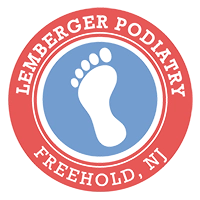Fractures in Freehold NJ

Crush injuries fall, and physical activity increases your risk of experiencing fractures. When left untreated, fractures can result in more serious problems, including disability, infection, and the need for surgical intervention. At his Freehold NJ podiatrist's private practice, board-certified podiatrist Steven Lemberger, DPM, DACFAS, diagnoses and treats foot fractures in patients of all ages. To schedule an appointment, call the office or book online today.
Fractures FAQs in Freehold NJ
What Is A Fracture?
A fracture is an injury to a bone. Fractures range in severity from minor hairline cracks to complete breaks that penetrate the skin. They can occur during automobile accidents, exercise, or slip-and-fall accidents.
Regardless of the underlying cause, fractures require immediate medical attention. Without braces, casts, or plates and screws, a broken bone won’t heal, resulting in further pain and immobility.
What Are The Symptoms Of Fractures?
How Are Fractures Diagnosed?
How Are Fractures Treated?
To explore your treatment options for foot fractures, schedule an appointment at the practice of Steven Lemberger, DPM, DACFAS. Call Lemberger Podiatry to speak with a friendly staff member or book a consultation online today.
OFFICE HOURS
Monday
9:00am - 5:00pm
Tuesday
9:00am - 5:00pm
Wednesday
9:00am - 5:00pm
Thursday
9:00am - 5:00pm
Friday
9:00am - 4:00pm
Saturday & Sunday
Closed
Lemberger Podiatry
505 Stillwells Corner Rd., Building C
Freehold, NJ 07728




